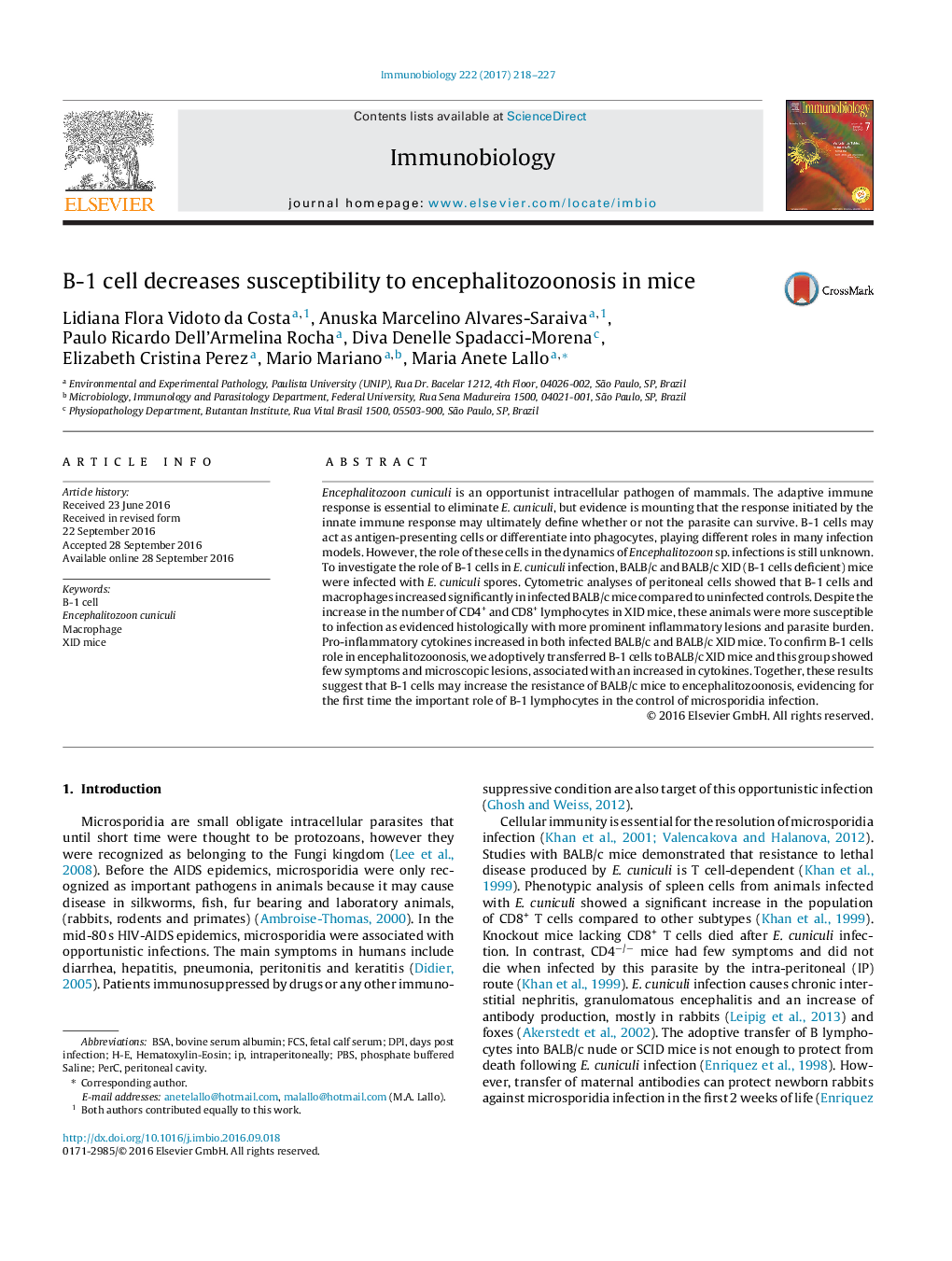| کد مقاله | کد نشریه | سال انتشار | مقاله انگلیسی | نسخه تمام متن |
|---|---|---|---|---|
| 5532662 | 1402064 | 2017 | 10 صفحه PDF | دانلود رایگان |

- B-1 cells participate an important role in the immune response against microsporidiosis.
- Macrophages population increased significantly in infected BALB/c mice, but not in infected or non-infected BALB/c XID mice.
- Increase of T lymphocytes in BALB/c and BALB/c XID mice infected with E. cuniculi.
- Adoptive transfer of B-1 cells was unable to protect BALB/c XID mice of E. cuniculi infection.
Encephalitozoon cuniculi is an opportunist intracellular pathogen of mammals. The adaptive immune response is essential to eliminate E. cuniculi, but evidence is mounting that the response initiated by the innate immune response may ultimately define whether or not the parasite can survive. B-1 cells may act as antigen-presenting cells or differentiate into phagocytes, playing different roles in many infection models. However, the role of these cells in the dynamics of Encephalitozoon sp. infections is still unknown. To investigate the role of B-1 cells in E. cuniculi infection, BALB/c and BALB/c XID (B-1 cells deficient) mice were infected with E. cuniculi spores. Cytometric analyses of peritoneal cells showed that B-1 cells and macrophages increased significantly in infected BALB/c mice compared to uninfected controls. Despite the increase in the number of CD4+ and CD8+ lymphocytes in XID mice, these animals were more susceptible to infection as evidenced histologically with more prominent inflammatory lesions and parasite burden. Pro-inflammatory cytokines increased in both infected BALB/c and BALB/c XID mice. To confirm B-1 cells role in encephalitozoonosis, we adoptively transferred B-1 cells to BALB/c XID mice and this group showed few symptoms and microscopic lesions, associated with an increased in cytokines. Together, these results suggest that B-1 cells may increase the resistance of BALB/c mice to encephalitozoonosis, evidencing for the first time the important role of B-1 lymphocytes in the control of microsporidia infection.
Journal: Immunobiology - Volume 222, Issue 2, February 2017, Pages 218-227